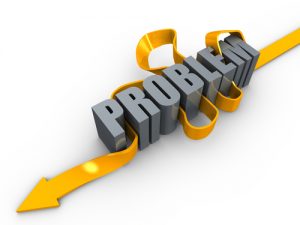Whoa, we’re half-way there…Whoa, (we’re not) livin’ on a prayer! Now that we are somewhat half-way through the term, we feel that we finally have a clearer idea of what exactly we will be researching for this project and how we will be going about this research. This was largely the result of completing our proposal, in which we determined our specific objectives and methods.
Previously, we had thought that aside from an assessment of kitchen infrastructure and the Legion’s food-related community programming, we would also need to identify methods that would improve the Legion’s operations, and develop specific activities and programs to implement at the Legion that would help meet the goals of Vancouver’s Food Strategy. To Natasha, this sounded daunting. Like the European farmers described by Jane Mt. Pleasant in the Deconstructing Dinner podcast, we are complete outsiders to the Legion culture and environment. Combined with the fact that we are undergraduate students with no experience developing community programs and strategies, how were we supposed to determine what was the ‘best’ choice for the Legion and the surrounding community? Even if we did develop a plan of action, how could it possibly be better than one developed by Legion staff and members themselves?
 Image from: http://www.churchleaders.com/children/childrens-ministry-how-tos/152517-how-to-be-a-problem-solving-leader.html
Image from: http://www.churchleaders.com/children/childrens-ministry-how-tos/152517-how-to-be-a-problem-solving-leader.html
After drafting our proposal and chatting with our TA, Colin, we then realized that we would need to simplify our objectives. Therefore, we decided that we will continue to assess the Legion’s kitchen infrastructure and food-related community programming, but we will analyze how they aid the Legion in meeting their organizational goals and those of the Vancouver Food Strategy instead. Whilst it did feel like we were ‘lowering the bar’ and choosing an easy way out, we had to come to terms with the fact that it would be close to impossible for us to have gathered and analyzed enough data to develop future programs and strategies within 2-3 months.
Weekly Objectives and Achievements:
To learn more about what we accomplished in weeks 1-3, check out blog post 1!
Week Four
Objectives
- Refine Blog Post based upon the TAs recommendations
- Start crafting a proposal (Introduction, Background & Significance, Methods)
Achievements
- Submitted finalized Blog Post 1, incorporating the TA’s feedback
- Completed a draft proposal to submit to the TA for feedback
Week Five
Objectives
- Complete a final copy of the proposal
- Conduct a literature review on the Legion and ABCD to determine linkages
- Research community partners
- Delegate tasks for proposal
Achievements
- During tutorial we incorporated the TAs feedback into our proposal
- Delegated sections of the proposal between group members for timely completion
- Completion of TCPS II so that every member can conduct ethical research in the community
Week Six
Objectives
- Complete Blog Post 2
- Decide a date to visit community partner
- Assign roles for visit to community partner and determine tools needed
Achievements
- Submitted initial Blog Post 2 for feedback from TA
- Determined date to visit our community partner
A Moment of Significance
What: Before attending the first flexible learning session at the West Point Grey Legion, legions seemed, at least to Philip, like exclusive bars that were only used as hangout locations for veterans. This posed a problem for our group as how are we supposed to propose an asset to increase community food security when the venue we are assessing is only limited to a certain demographic? The information presented at our meeting there however, completely changed our group’s perspective about the organization.
So What: Revelations, such as legion membership being open to almost anyone and the types of public programming held there made us understand how much more accessible the legion was, compared to what we previously thought. We recognized that programs, such as gift card distributions, help ensure food security and the affordable barbeques that are held by the Legions are valuable assets to the community.
Now What: This made us more excited about the community project we were engaging in – we realized the great variety and number of people within the community that could be positively affected by community programs in institutions akin to the Legion. Hopefully, our increased excitement will translate into a better work ethic, leading to a detailed and accurate assessment of Legion infrastructure.
Upcoming Objectives and Strategies
Moving forward we have a number of weekly objectives to meet. Within the next few days, we will determine a time that works for everyone in order to go and visit the Legion for data collection. Ideally, we plan to visit the Legion on a day when a food-related community program is taking place, so we can assess both the kitchen and the program. In order to complete our assessment, we will bring a blank log to record the type and number of the infrastructure present within the kitchen and use a camera to document kitchen conditions and avoid lapses in recall. During this visit we will also conduct interviews to gather information from Legion staff and members. Once this data has been collected, we will begin analyzing and coding data in order to determine common themes and information that will be used for our final reports, and ultimately for the Vancouver Food Strategy as well. However, Justin Nolan’s discussions with the grandmothers of Cherokee Nation in the Deconstructing Dinner podcast informed us that we must also be aware of how these traditional methods of conducting research may limit our understanding of the Legion food system. Thus, we should also consider and utilize unconventional, alternative methods of gathering data should they come our way. To make sure that we are able to meet all of our objectives, open and constant communication will be needed between group members. This will be done through facebook, email, and group meetings.
We know that things don’t always go according to plan, but hopefully, we have taken enough precautions to have a successful visit. If things do not go our way we will just have to keep the TED talk by Tim Harford in mind, and how any frustrations we encounter can make us more creative. For if things go smoothly it will certainly be less stressful for us, but this can also cause complacency, something that can be just as detrimental. We will just have to be prepared to work harder to overcome whatever problems come our way, and if need be “sit down and try and play the unplayable piano.”
 Image from: http://blogs.psychcentral.com/therapist-within/2011/03/internal-improvisation-making-music-even-when-youre-broken/
Image from: http://blogs.psychcentral.com/therapist-within/2011/03/internal-improvisation-making-music-even-when-youre-broken/